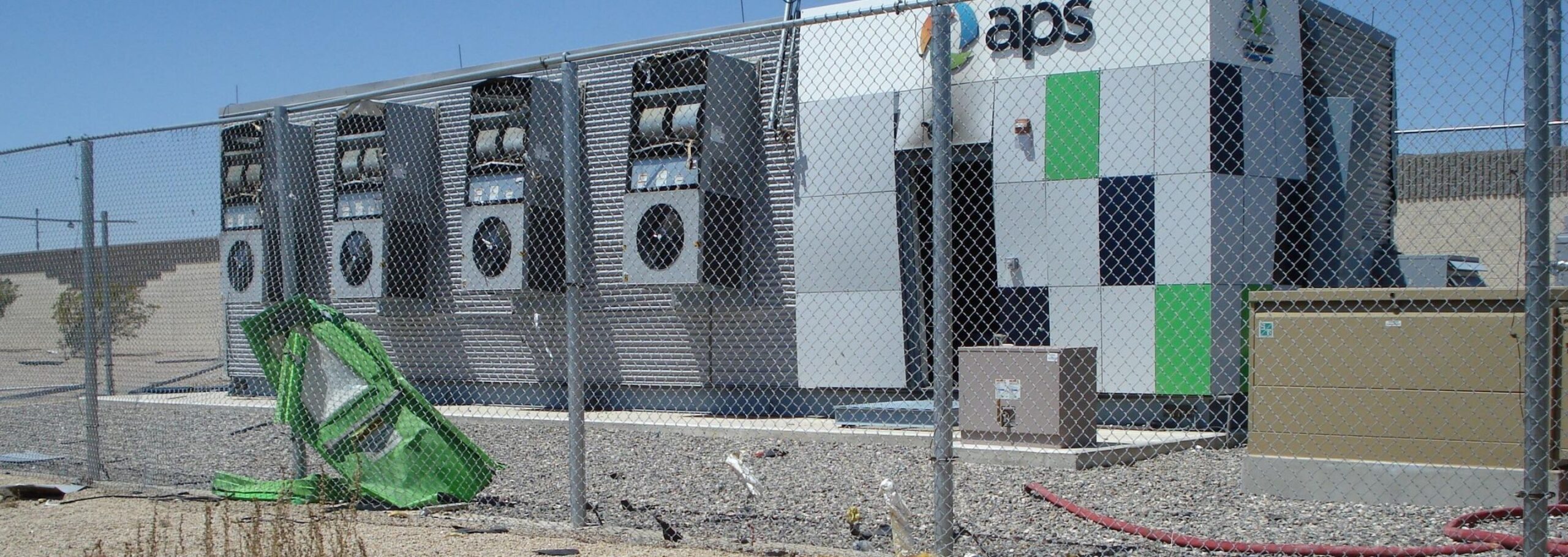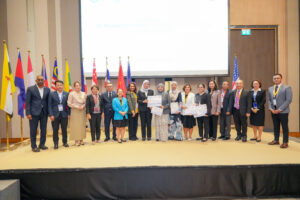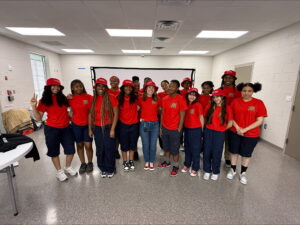Report Investigates Near‑Miss Lithium‑Ion Battery Energy Storage System Explosion

Recommendations to enhance safety of fire service personnel responding to incidents at battery storage sites and improve fire prevention and suppression measures
Columbia, Md. – July 29, 2020 – UL’s Fire Safety Research Institute (FSRI) released a report today detailing a deflagration incident at a 2.16 MWh lithium-ion battery energy storage system (ESS) facility in Surprise, Arizona. The report provides a detailed technical account of the explosion and fire service response, along with recommendations on how to improve codes, standards, and emergency response training to better protect first responders, maintenance personnel and nearby communities.

“The ability to study lithium-ion battery-related fires on this scale with first-person accounts from the responding firefighters is critically important to protecting the lives of first responders in similar situations,” said Dr. Steve Kerber, FSRI vice president and executive director. “We’re dealing with new technology, which brings about new fire-related hazards. We have an opportunity to learn from this incident and improve future outcomes by sharing resources and enhancing training and safety protocols.”
This report is a first-of-its-kind research effort from UL FSRI to capture the experience of surviving firefighters to better understand a potentially devastating situation. Four career firefighters with specialized hazardous materials (hazmat) training were severely injured in the explosion. They recounted their experience to help inform the report, the investigation team’s understanding of how the fire and gases behaved, and subsequent recommendations for ESS safety training.

“Typically, these kinds of events are examined when a fatality occurs,” Kerber continued. “But with this report, we’re trying to make sure the firefighter experiences are taken into account, providing valuable context to the findings so that they can be channeled into actionable insights for other fire service personnel to prevent future close calls and potential fatalities We’re incredibly grateful for Peoria and Surprise Fire-Medical teams and Arizona Public Service for providing information to support learning from this incident.”
Lithium-ion battery ESS facilities have proliferated in recent years, presenting a new challenge for the fire protection community. Sourcing the experiences of the firefighters, UL FSRI’s report recommends new standards and codes for ESS sites, research programs, and curricula. Recommendations include fire service training with an emphasis on ESS safety, remotely accessible gas monitoring systems, explosion prevention protection, and full-scale testing research to understand the most effective and safest tactics for fire service response to lithium-ion battery ESS incidents.
Read the Full Report and Recommendation
About UL’s Fire Safety Research Institute (FSRI)
FSRI advances fire research knowledge and develops cutting edge, practical fire service education aimed at helping firefighters stay safe while more effectively protecting people and property. Guided by a global advisory board comprised of fire service personnel, UL FSRI investigates residential, commercial, and industrial fires through full-scale testing, field-testing, and modeling to replicate actual fires faced by firefighters. Research results are shared through interactive training courses that have reached hundreds of thousands of firefighters globally. To learn more, visit FSRI.org. Follow us on Instagram and Facebook.
About Underwriters Laboratories
Underwriters Laboratories is a nonprofit organization dedicated to advancing the UL public safety mission through the discovery and application of scientific knowledge. We conduct rigorous independent research and analyze safety data, convene experts worldwide to address risks, share knowledge through safety education and public outreach initiatives, and develop standards to guide safe commercialization of evolving technologies. We foster communities of safety, from grassroots initiatives for neighborhoods to summits of world leaders. Our organization employs collaborative and scientific approaches with partners and stakeholders to drive innovation and progress toward improving safety, security, and sustainability, ultimately enhancing societal well-being. To learn more, visit UL.org.
PUBLISHED









